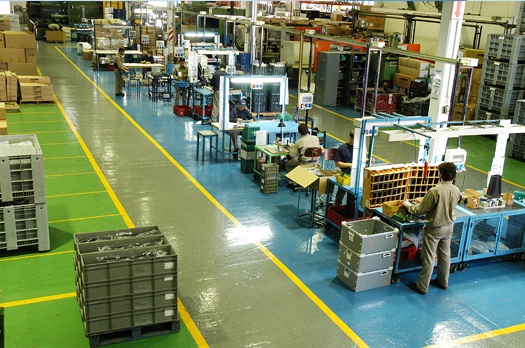NPDES & TPDES-MSGP
- RSB Environmental assists in implementing NPDES & TPDES for TCEQ compliance.
- We help you identify the applicable permit for your facility.
- We offer a wide range of regulatory compliance services.
- Our company can help your facility meet TCEQ requirements.
Request a free custom quote or call 1-833-910-2535














Reviews
WHAT OUR RECENT CLIENTS SAY ABOUT US
Sachin and his team at RSB Environmental are very helpful with our company’s environmental needs. Always courteous and informative in regards to our questions.
RSB Environmental is a great company, they are easy to work with and handle all our Environmental needs in a friendly professional way. I would recommend RSB Environmental for all your company’s environmental needs.
U.S. Environmental Protection Agency (EPA) Issues 2021 National Pollutant Discharge elimination System MSGP for Industrial Stormwater Discharges
WHAT IS NPDES?
The NPDES, National Pollutant Discharge Elimination System, stormwater program regulates some stormwater discharges from three potential sources: municipal separate storm sewer systems (MS4’s), construction activities, and industrial activities. Operators might be required to obtain coverage under the general permit for point source discharges of stormwater runoff associated with industrial activity before they can discharge their stormwater. This permitting mechanism is designed to control the water quality and prevent stormwater runoff from washing harmful pollutants into local surface waters.

Distinguishing NPDES and TPDES Permits
The National Pollutant Discharge Elimination System (NPDES) permit program, established federally by the EPA under the Clean Water Act, has state-specific counterparts, such as the Texas Pollutant Discharge Elimination System (TPDES) in Texas. Although both NPDES and TPDES regulate the discharge of pollutants to protect water quality, regulations and procedures may differ due to state-level environmental considerations. RSB Environmental helps businesses navigate these complex permit requirements, whether federal NPDES or state-specific TPDES. The firm aids in identifying applicable permits, guiding through application processes, ensuring compliance, and handling regulatory reporting, thus bridging the gap between federal and state environmental requirements.
WHAT IS THE MSGP FOR INDUSTRIAL ACTIVITIES?
Industrial stormwater permitting is an important part of the Clean Water Act to ensure surface water protection by requiring certain industrial activities to obtain permit coverage to discharge stormwater to waters of the U.S. Unlike wastewater that is treated before being discharged, stormwater does not get treated. The stormwater program relies on best management practices to minimize pollutants in stormwater discharges from industrial facilities.
The MSGP is a npdes permit that covers new and existing discharges of stormwater from industrial facilities. Industrial facilities conduct activities and use materials that have the potential to impact the quality of US waters. The permit requires facilities to examine potential sources of pollution, implement measures to reduce the risk of stormwater contamination, and test stormwater discharges for sources of pollution by developing a stormwater pollution prevention plan (SWPPP).
RSB can assist you identify the permit applicability for your facility. RSB offers a wide range of regulatory compliance services and fully understands the federal, state, and local regulations associated with each service.
How do I obtain coverage under the Multi Sector General Permit (MSGP)?
The process to obtain coverage under the MSGP first requires the creation and implementation of a Stormwater Pollution Prevention Plan (SWPPP) followed by submitting a NOI by either using the iNOI online system or submitting a complete paper Notice of Intent (NOI).
Once a permit is obtained the facility is required to perform regular inspections, training, sampling and annual or quarterly reporting to Texas Commission on Environmental Quality (TCEQ) to stay in compliance.
RSB Environmental has developed a Stormwater management monthly program to implemented and managed the Texas Pollutant Discharge Elimination System npdes (TPDES) Permitting to fulfill all Texas Commission on Environmental Quality (TCEQ) requirements for any type of industrial activity as well as for concrete ready mix facilities.
WHAT IS A STORMWATER POLLUTION PREVENTION PLAN (SWPPP)?
A SWPPP is required for compliance with the npdes Permit and by State/Federal Regulations. The Multi Sector Permit covers the industrial stormwater activities exposed to rainwater and runoff.
The SWPPP is a living document and should be updated as site conditions changes or if current Best Management Practices (BMPs) fail to achieve the intended results. The SWPPP should also include documentation demonstrating regular inspections, training, and sampling have been performed in accordance with any permits specific to your facility. RSB can help your facility meet Texas Commission on Environmental Quality (TCEQ) or your regulatory agency requirements.
RSB site specific SWPPP plan contains:
- Annual comprehensive site compliance evaluations
- Signatures on designated worksheets in accordance with the attached signatory requirements
- Quarterly site inspections of the facility
- Quarterly visual monitoring of stormwater discharges
- Analytical monitoring of stormwater discharges
- Maintenance of a rain gauge with corresponding event log on site
- Remedy by SWPPP team of all benchmark exceedances within 90 days of notification
If you require assistance understanding the new requirements, permit applicability, or need assistance with renewing your multi sector general permit including updating your SWP3, or submitting a permit application, please contact us at 1-888-760-6802. RSB has extensive experienced on NPDES permitting and can help you reach and stay in compliance.
HOW WE CAN HELP!
At RSB Environmental we recognize that many managers and staff do not have the man-hours and/or experience to ensure that all required compliance tasks, including storm water, are being done in the required timeframe(s).
RSB Environmental has come up with a fixed fee monthly program to address all requirements of npdes Permit and Plan. We call this program… Storm CHESS. We can assist you in developing a stormwater management system that ensures compliancy thus avoiding costly fines and penalties.
Our team of engineers and environmental professionals will help mitigate risk by implementing Best Management Practices (BMP), collect samples, analyze, and report them to the State and Local agencies. Headquartered in Houston, Texas we also have field offices in cities across America.
Please contact us at info@rsbenv.com if you need help complying with the new Permit, or have questions.
We have extensive experience with applying for storm water coverage, preparing SWPPPs and managing storm water compliance programs for a wide range of industrial facilities throughout the nation.
Frequently Asked Questions
What is an NPDES permit?
The Clean Water Act prohibits anybody from discharging “pollutants” through a “point source” into a “water of the United States” unless they have an NPDES permit. The general NPDES permit will contain limits on what you can discharge, monitoring and reporting requirements, and other provisions to ensure that the discharge does not hurt water quality or people’s health. In essence, the permit translates general requirements of the Clean Water Act into specific provisions tailored to the operations of each person discharging pollutants.
Who needs an NPDES permit?
If you discharge from a point source into the waters of the United States, you need an NPDES permit. If you discharge pollutants into a municipal sanitary sewer system, you do not need an NPDES permit, but you should ask the municipality about their permit requirements.
What is an NOI permit?
An NOI for a general permit is notice to the NPDES permitting authority (EPA in this instance) of the operator’s intent to be covered under the NPDES permit. An NOI typically contains basic information about the site and the proposed discharge. … A fraudulent or erroneous NOI invalidates permit coverage.
Who requires these permits?
Any facility that discharges pollutants from a point source into the waters of the United States needs either an NPDES or TPDES permit, depending on their location.
How do I know which permit applies to my facility?
The application of NPDES or TPDES depends on your location and specific industrial activity. Consulting with experts like RSB Environmental can provide clarity.
Our Registrations and Certifications







Industrial Hygiene

Engineering

Safety

Environmental Compliance




